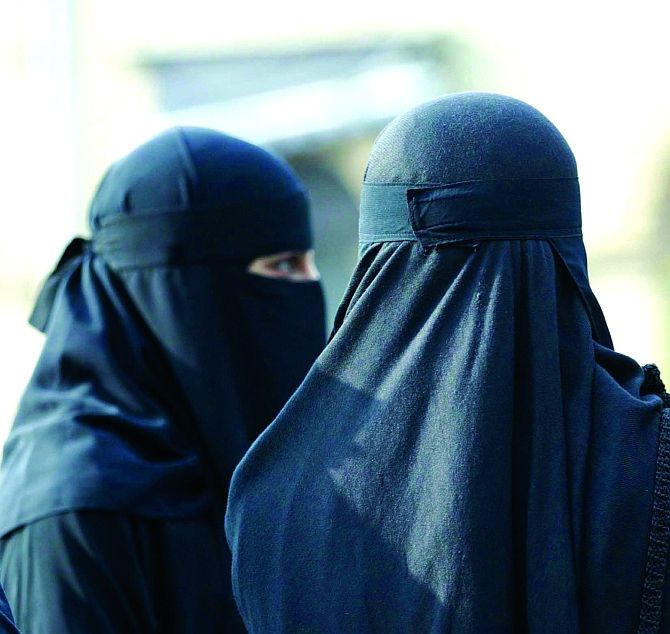 The Supreme Court on Thursday fixed May 11 for commencement of hearing on pleas challenging the validity of triple talaq, 'nikah halala' and polygamy practices among Muslims.
The Supreme Court on Thursday fixed May 11 for commencement of hearing on pleas challenging the validity of triple talaq, 'nikah halala' and polygamy practices among Muslims.
A bench comprising Chief Justice J S Khehar and Justice D Y Chandrachud said the matter will be heard by a Constitution bench during the summer vacation.
On March 27, the All India Muslim Personal Law Board told the Supreme Court that the pleas challenging such practices among Muslims were not maintainable as the issues fell outside the realm of judiciary.
The board had also said that the validity of Mohammedan Law, founded essentially on the Holy Quran and sources based on it, cannot be tested on the particular provisions of the Constitution.
It had said there was a need for "judicial restraint" before going into constitutional interpretation of these unless such an exercise becomes unavoidable.
The apex court had earlier said it would decide issues pertaining to "legal" aspects of the practices of triple talaq, 'nikah halala' and polygamy among Muslims and would not deal with the question whether divorce under Muslim law needs to be supervised by courts as it falls under the legislative domain.
The Centre, on October 7 last year, had opposed in the Supreme Court the practice of triple talaq, 'nikah halala' and polygamy among Muslims and favoured a relook on grounds like gender equality and secularism.
The Ministry of Law and Justice, in its affidavit, had referred to constitutional principles like gender equality, secularism, international covenants, religious practices and marital law prevalent in various Islamic countries to drive home the point that the practice of triple talaq and polygamy needed to be adjudicated upon afresh by the apex court.
The apex court had taken suo motu cognizance of the question whether Muslim women faced gender discrimination in the event of divorce or due to other marriages of their husband.
Representative image











 © 2025
© 2025